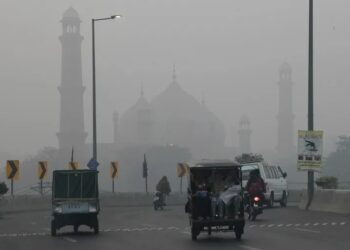Written by: Abdul Basit Alvi
The term diaspora refers to a group of people who have moved or been dispersed from their original homeland to various parts of the world. While diaspora communities have long existed, they remain a dynamic and growing force in the global landscape. Today, their importance is increasingly recognized across a wide range of sectors, including economics, culture, politics, and social change.
One of the most significant ways that diaspora communities contribute to the global economy is through remittances. According to the World Bank, migrants send billions of dollars back to their home countries each year, supporting families, enhancing infrastructure, and strengthening local economies. In some cases, remittances represent a substantial portion of a nation’s GDP, providing a vital financial lifeline for people in developing countries. Beyond remittances, diasporas can also be key drivers of investment. Diaspora networks often maintain strong ties to their countries of origin, investing in local businesses, real estate, and infrastructure projects. These investments can create jobs, encourage innovation, and foster economic development in regions that might otherwise be overlooked by traditional investors. Additionally, diaspora members often act as intermediaries, facilitating trade and business partnerships between their host and home countries. This creates opportunities for both nations to benefit from new markets, ideas, and collaborations.
The cultural impact of diaspora communities is equally profound. They bring with them a wealth of traditions, languages, cuisines, art forms, and perspectives that enrich the social and cultural life of their host countries. From the vibrant food scenes in major cities worldwide to the proliferation of multicultural festivals, diasporas play a central role in promoting diversity and intercultural understanding. These cultural exchanges are not one-sided; many diaspora communities maintain strong ties to their heritage, passing down customs and traditions to future generations. This helps preserve languages and practices that might otherwise fade. At the same time, younger generations of diasporas often blend elements from both their ancestral culture and the culture of their host country, resulting in hybrid identities and fostering cross-cultural innovation. In countries with diverse diaspora populations, this fusion of cultures contributes to a dynamic national identity, which can promote tolerance, creativity, and mutual respect.
Diaspora communities have long been active in political advocacy, both in their host countries and their countries of origin. Politically engaged diaspora groups can exert significant influence over the policy decisions of their host governments, especially on issues that directly impact their homelands. Through lobbying, activism, and electoral participation, diasporas can shape foreign policy, promote human rights, and advocate for social justice on the global stage. In some instances, diaspora members may even play a direct role in the political life of their countries of origin, running for office, crafting policy, or contributing to post-conflict reconstruction. The political involvement of diaspora groups can help drive democratic reforms, support human rights, and aid peace-building efforts, particularly in regions experiencing conflict or instability.
Finally, diaspora communities can be powerful agents of social change. By leveraging their connections, resources, and expertise, diasporas often address critical issues like poverty, education, healthcare, and human rights in their home countries. Diaspora-led initiatives can be particularly impactful in regions where government resources are scarce or infrastructure is lacking. For instance, many diaspora communities have founded NGOs or social enterprises focused on development initiatives like building schools, providing healthcare, and advancing environmental sustainability. These organizations often possess the trust and cultural insight necessary to address complex local issues, and they are able to mobilize both financial and human resources from within the diaspora and beyond. Additionally, members of the diaspora frequently serve as role models for social mobility and achievement, motivating younger generations both in their communities and in their countries of origin. By exemplifying the importance of education, entrepreneurship, and civic engagement, they inspire others to chase their dreams and contribute to meaningful social change. In today’s interconnected world, challenges such as climate change, health crises, migration, and international trade increasingly demand global collaboration. Diaspora communities, with their global networks and ability to connect different regions, are uniquely positioned to engage in and contribute to important global discussions. Acting as bridges between diverse parts of the world, they facilitate dialogue, cooperation, and solidarity across borders. For example, during global health crises such as the COVID-19 pandemic, diaspora communities played a vital role in sharing information, offering support, and even helping to transport medical supplies and expertise across national boundaries. Similarly, in the context of climate change, diasporas can help raise awareness, fund initiatives, and encourage action across multiple countries. These global diaspora networks foster collaboration and understanding, bringing together people from varied backgrounds and contributing to a more united and compassionate world. By championing global causes, diasporas remind us that humanity is interconnected, and that collective action is often key to solving the world’s most pressing challenges.
On the other hand several real-world examples illustrate how diaspora migration can also have negative consequences for countries of origin. The Philippines, for instance, has one of the largest and most widespread diaspora communities in the world. Millions of Filipinos work abroad, mostly in low-wage, labor-intensive jobs such as domestic work, healthcare, and construction. While remittances sent back to the Philippines form a significant portion of the country’s GDP, this heavy reliance on foreign earnings has created an economic dependency that is unsustainable over the long term. In 2023, the Philippines ranked as the third-largest recipient of remittances globally, with Filipino workers abroad sending billions of dollars home each year. While these remittances provide crucial support to families and local economies, they also contribute to an economic imbalance. The country becomes increasingly dependent on money from abroad, reducing the focus on developing sustainable domestic industries and employment opportunities. Without significant economic development, the Philippines risks becoming unable to reduce its reliance on foreign income.
Mexico provides another example where migration to the U.S. has had both positive and negative effects. The Mexican diaspora, particularly in the U.S., plays a vital role in supporting families back home, sending billions of dollars in remittances each year. However, this outflow of people also has notable drawbacks. Remittances from the Mexican diaspora make up a substantial part of the economy, especially in rural areas. While this financial support is crucial, it can also contribute to a growing dependency on foreign income, leaving the country less focused on creating sustainable economic growth at home. While remittances offer immediate financial relief to families, they also foster a dependency on foreign income. This reliance can hinder local economic development in areas most dependent on migration, as there is less motivation to invest in infrastructure, education, and job creation at home. As a result, the economy becomes more unbalanced, increasingly reliant on external funds instead of cultivating strong, local industries. The migration of young, able-bodied workers has led to significant demographic shifts in rural Mexico. As younger generations seek better job opportunities abroad, elderly populations and children are left behind in villages, where community structures weaken. This disruption to family units and local social cohesion is particularly evident in remote areas, which often face higher poverty rates, inadequate healthcare, and declining educational standards due to the absence of a stable workforce. In some instances, large-scale migration from rural Mexico to the U.S. has also contributed to a decline in civic participation, as migrant workers living abroad are less likely to vote or engage in local governance and community development in Mexico. As a result, local governments may become less responsive to the needs of their constituencies, particularly in rural areas where outmigration has been especially pronounced. The Syrian diaspora, a consequence of the ongoing civil war and political crisis, has provided both immediate relief to displaced Syrians and brought international attention to the situation. However, the impact of this large-scale migration has been mixed, leading to significant challenges for Syria’s future. The Syrian diaspora has grown increasingly politically engaged, but its involvement in Syria’s internal affairs has had divisive effects. Expatriates living in Western countries often align with different sides of the civil war, advocating for conflicting political solutions, which further polarizes an already fragmented society. For instance, while some diaspora members support opposition groups fighting the regime, others remain loyal to the Syrian government. This foreign influence can complicate peace negotiations and hinder efforts to rebuild a unified Syria.
Similarly, the Pakistani diaspora is one of the largest and most influential in the world, with millions of Pakistanis living in countries such as the Middle East, the U.S., the U.K., Canada, and the Gulf States. Many members of the diaspora maintain strong connections with their homeland, contributing to Pakistan’s economy through remittances and nurturing cultural and social ties. However, a segment of the Pakistani diaspora has become increasingly involved in political activism critical of Pakistan’s government and military. Some of these groups engage in anti-Pakistan and anti-army campaigns, raising concerns about the impact of diaspora involvement on Pakistan’s internal politics, national security, and global reputation.
The participation of some members of the Pakistani diaspora in such activities often stems from political and social discontent with the situation in Pakistan. Many individuals involved in anti-government campaigns have left the country due to political persecution or ideological differences. Historically, political exiles—including former leaders, activists, and intellectuals who fell out of favor with Pakistan’s ruling regimes—have sought refuge abroad, where they continue to influence discussions and actions related to Pakistan’s domestic affairs. Exiles from Pakistan often criticize the government and military for alleged human rights abuses, authoritarian practices, and the military’s overwhelming influence on the country’s political landscape. Recently, anti-state and anti-army narratives, along with false propaganda, have reached new heights, particularly within the Pakistani diaspora. One of the primary ways these sentiments are expressed is through diaspora networks, political lobbying, and the use of digital platforms. Modern communication tools, especially social media, have made it easier for individuals to organize, mobilize, and disseminate information on a global scale. Platforms like Twitter, Facebook, and YouTube have become central channels through which members of the diaspora articulate their opposition to Pakistan’s policies, particularly those of the military. Various diaspora communities organize public protests and demonstrations in cities worldwide, particularly in places with large Pakistani populations such as London, Toronto, New York, and Dubai. These protests typically demand the resignation of Pakistan’s government or military leadership. The diaspora often leverages its political influence in foreign countries to apply pressure on Pakistan’s government, engaging in lobbying efforts targeting human rights organizations, international bodies like the United Nations, and foreign governments. In some cases, these groups aim to sway the foreign policies of Western countries toward Pakistan, particularly in areas like military aid, trade relations, and support for democratic reforms.
Members of the Pakistani diaspora also have a strong presence in global media, including television, radio, and print journalism. Many, particularly those who fled Pakistan due to political reasons, work as journalists and commentators who openly criticize the political and military leadership of Pakistan. Some members of the diaspora have also been involved in confrontational acts, such as chasing and publicly confronting Pakistani political or military figures visiting abroad, chanting slogans against them in public spaces.
The anti-Pakistan activities of diaspora communities can significantly impact Pakistan’s national interests and its international reputation. Lobbying efforts by diaspora groups can create diplomatic tensions between Pakistan and other countries. For example, when the diaspora successfully persuades foreign governments to raise human rights concerns related to Pakistan at international forums, it may lead to strained bilateral relations, calls for sanctions, or reductions in military aid. This can damage Pakistan’s global standing and affect relationships with key allies, particularly the U.S. and European nations.
Public criticism of the Pakistani government and military from the diaspora can also influence domestic politics by undermining the legitimacy of the government in the eyes of international stakeholders and emboldening opposition groups within Pakistan. Furthermore, diaspora activism focused on specific regional or political causes can exacerbate ethnic and political divisions within Pakistan. While raising awareness about these issues, it can also inflame existing tensions and foster polarization, making it harder for the country to pursue national reconciliation.
A concerning trend has emerged among some members of the diaspora, particularly supporters of Imran Khan and the Pakistan Tehreek-e-Insaf (PTI) party, who have engaged in activities seen as detrimental to Pakistan’s stability and reputation. These actions, which include spreading misinformation, participating in disruptive protests, and attempting to incite unrest, have led to accusations that certain members of the PTI diaspora are working against Pakistan’s interests. While political dissent is a natural part of any democracy, some of these actions go beyond criticism and could be perceived as harmful, damaging, or even treasonous behavior. After Imran Khan’s removal from office in April 2022, PTI supporters, including those in the diaspora, became more outspoken in their opposition to Pakistan’s government and military. However, some members of the diaspora went beyond peaceful protest and advocacy, engaging in rhetoric and actions that incited violence and political instability. Prominent PTI figures, including YouTubers and influencers based in countries like the United Kingdom and Canada, delivered speeches calling for violent protests in Pakistan, framing Khan’s ouster as a conspiracy orchestrated by the military and the ruling coalition. These statements, especially from PTI leaders living in exile, were seen as inciting actions that could worsen the political situation in Pakistan. Following Khan’s removal, certain diaspora supporters openly praised the violent actions taken by protesters in Pakistan. On social media and in interviews with international media, they justified the violence against law enforcement during the protests, framing it as a legitimate response. They have praised violent marches as “freedom struggles” and urged similar actions among supporters back home. Such incitement to violence, particularly at critical moments, only deepened Pakistan’s political crisis and raised concerns about the safety of both citizens and government officials. These actions contributed to escalating violence on the streets of Pakistan, with the military and law enforcement agencies drawn into increasingly dangerous confrontations with protesters, many of whom were emboldened by the rhetoric of PTI diaspora members. This situation intensified internal tensions, risking further alienation of various political factions and destabilizing Pakistan at a time when the country was already facing serious challenges.
Another damaging aspect of the PTI diaspora’s involvement in anti-Pakistan activities is its ongoing efforts to damage Pakistan’s image on the global stage. Some members of the PTI diaspora have made it their mission to attack Pakistan’s military and government through international forums, lobbying efforts in Western capitals, and global media outlets. Certain PTI supporters have spread misleading narratives that depict Pakistan’s civilian government as merely a puppet of the military. They often exaggerate the military’s role, labeling Pakistan as a “military dictatorship,” even though the military only holds significant influence in specific areas like security and foreign policy. These distorted portrayals contribute to an international perception of Pakistan as an unstable, undemocratic state.
In interviews with foreign news outlets, PTI supporters have made inflammatory statements accusing Pakistan’s military of human rights abuses, electoral manipulation, and suppressing political opposition. These individuals tend to ignore the broader socio-political context of Pakistan, presenting a highly one-sided narrative that fuels negative perceptions of the country. This narrative harms Pakistan’s diplomatic relationships, damages its international reputation, and impedes its economic prospects. The relentless flow of negative rhetoric has also strained Pakistan’s diplomatic ties, particularly with countries that host large Pakistani diaspora communities.
One of the most damaging actions of PTI supporters abroad has been the spread of disinformation through social media. Diaspora PTI members have used platforms like Twitter, Facebook, and YouTube to propagate conspiracy theories, disseminate fake news, and stoke hatred against Pakistan’s military and political leadership. This disinformation has misled the international community and further divided Pakistani society. Diaspora members have been accused of circulating fabricated videos and unverified reports that accuse Pakistan’s government and military of corruption, human rights abuses, and election manipulation. These sensationalized narratives are often presented as “evidence” of systemic issues in Pakistan, intensifying the country’s internal divisions and damaging its credibility abroad. For example, allegations of election rigging have been significantly exaggerated, with some members of the PTI diaspora accusing the military of manipulating elections to secure a specific outcome. PTI’s social media network, including its diaspora supporters, often amplifies political events to align with their narrative, spreading provocative content such as memes, edited videos, and fabricated news stories that stoke anti-military sentiment. This not only misguides the general public in Pakistan but also alienates the international community from addressing Pakistan’s challenges in a constructive way. These campaigns have deepened societal polarization, especially during elections and protests, and are aimed at undermining trust in both government institutions and the military. Disinformation further exacerbates the situation by creating confusion, making it more difficult for Pakistan to navigate political crises or attract foreign investment. The PTI diaspora has also harmed Pakistan’s national interests by attempting to sway foreign governments to take positions against the country. These efforts typically involve lobbying Western powers to impose sanctions, cut military aid, or adopt a firmer stance against Pakistan’s government and military. Some members of the PTI diaspora have pushed for countries like the United States, the United Kingdom, and the European Union to impose sanctions on Pakistan, often citing human rights abuses or accusing the military of an “undemocratic” role in governance. These calls for sanctions are seen by critics as an attempt to isolate Pakistan internationally and undermine its sovereignty. Such lobbying campaigns can damage Pakistan’s relationships with key global powers, hindering its ability to secure vital trade deals, foreign aid, and military cooperation. These actions weaken Pakistan’s diplomatic efforts to maintain balanced relations with the United States, China, and its regional neighbors, further eroding its global standing and fueling international scrutiny.
In addition, some PTI members abroad have resorted to hate speech and personal attacks against Pakistan’s political leadership, military officials, and institutions. This rhetoric goes beyond legitimate political critique, aiming to discredit and degrade Pakistan’s leadership. Prominent figures such as General Qamar Javed Bajwa, former Army Chief, former Chief Justice Qazi Faez Isa, and Defense Minister Khawaja Asif have been the target of sustained personal attacks from the PTI diaspora. These attacks have included calls for their imprisonment, accusations of treason, and derogatory comments about their personal lives. This kind of behavior contributes to the toxic political environment, further eroding respect for Pakistan’s institutions. The personal attacks not only deepen divisions among Pakistanis abroad but also within the country itself. The use of vitriolic language and hostile rhetoric by the PTI diaspora makes it harder to foster peaceful dialogue or national reconciliation, exacerbating political polarization and social unrest.
I often tell my relatives who live abroad and criticize Pakistan without logical reasoning that they should have the courage to visit the country and see things for themselves before passing judgment. While I acknowledge India’s troubling history of human rights violations and global terrorism, it is worth noting that their diaspora does not engage in campaigns from abroad against India, its government, or leadership. In this regard, Pakistan’s diaspora should reflect on the impact of their actions and consider the broader consequences of their rhetoric. Unfortunately, the culture of hate and disrespect toward political opponents has been fostered by Imran Khan and deeply ingrained in the minds of his supporters, which has had a damaging effect on Pakistan’s image both domestically and internationally, particularly for the diaspora. The Pakistani diaspora should take on a more constructive role in helping the country overcome its current challenges, much like other diasporas around the world, rather than contributing to the weakening of Pakistan’s global standing.
While no one can deny the invaluable contributions of the diaspora to Pakistan’s economy, the negative actions and rhetoric of certain individuals within the diaspora are distorting the image of both Pakistan and its people abroad. These individuals do not represent the views or values of all Pakistanis. The majority of the nation remains deeply loyal to Pakistan and its institutions, rejecting any attempts to undermine or harm the country with divisive and harmful rhetoric.

























